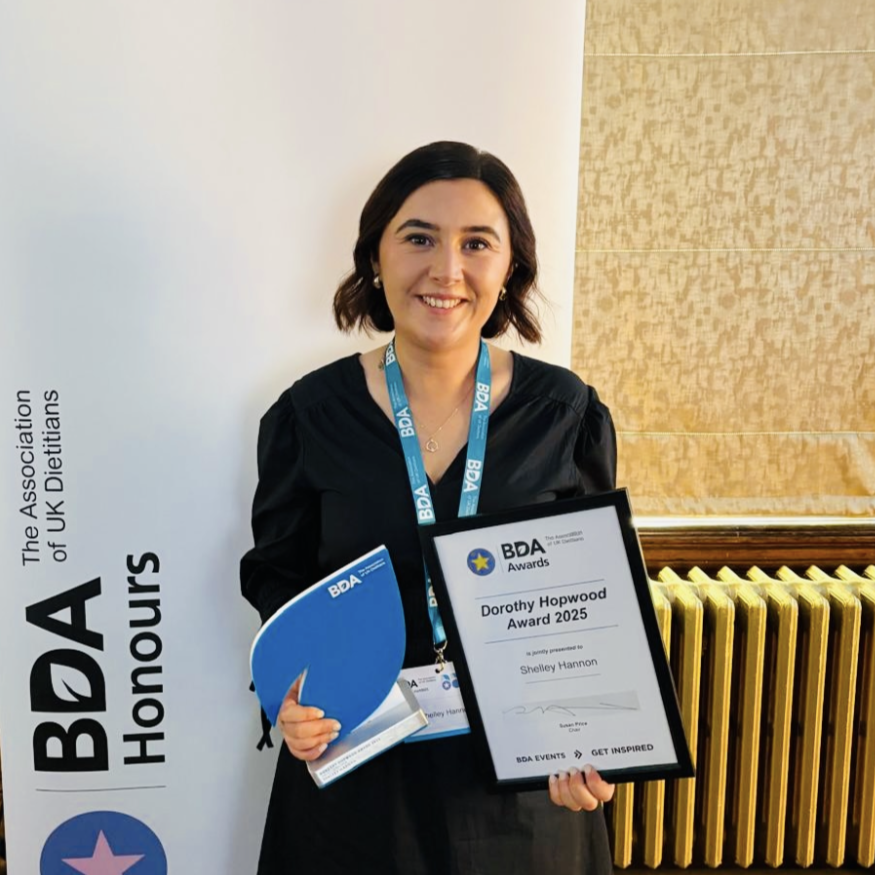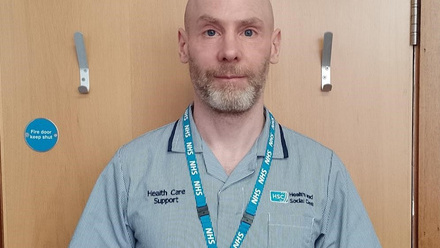Dietetic support workers are a crucial part of the dietetic workforce, working across the UK in various settings to provide essential nutrition and dietetic services to patients.
The Dorothy Hopwood Award, which we give out at the BDA's Awards and Honours ceremony, recognises a member of the dietetic support workforce who has made exceptional contributions within their role. This Dietetic Support Workforce Day, we hear from this year’s joint recipients Shelley Hannon and Paru Mistry about their experiences and responsibilities. What does the average day look like? What do they find most rewarding? After all – no two days or roles are the same!
A day in dietetics - Shelley Hannon
This year, I have taken up two new roles within the dietetic service in the Northern Health and Social Care Trust. I split my week between working as a Dietetic Assistant Practitioner for Quality Improvement and as a Prescribing Support Co-ordinator within the Regional Prescribing Support Dietetic Team. Although the two roles differ, they often intertwine with one another.
8.00-9.00 – Starting the day
Within quality improvement, I usually begin my day catching up with my Team Lead to review progress on our current projects and agree on actions for the week ahead. As we are a small team of two, regular communication is essential to keep momentum on our work.
11.30-12.00 – Planning and patient engagement
At the moment, we are introducing group sessions for patients diagnosed with type 2 diabetes. Late morning often involves organising sessions as well as speaking to patients to discuss the benefits of attending.
13.30 – 14.00 – Analysing feedback
Afternoons can be spent reviewing feedback from patients and staff following pilot projects, such as introducing new snack options on acute hospital wards. Analysing data helps demonstrate outcomes and identify areas for improvement before scaling up across the Trust.
16.00 – 17.00 – Wrapping up for the day
Before finishing up, I take time to record any progress on actions and touch base with relevant colleagues to share updates. Collaboration with wider teams and departments is important within this work to drive meaningful change.
What do your evenings look like?
In the evenings, I enjoy taking my golden retriever Hugo for a forest walk. It is the perfect way to unwind and get the steps in.
The power of paediatric dietetics - Paru Mistry
For the past eight years, I have been working as a Paediatric Dietetic Assistant Practitioner at Bradford Teaching Hospitals NHS Foundation Trust. Although I had no prior dietetic experience before starting this role, I have always had a strong interest in food and nutrition, together with a genuine desire to improve health outcomes for children from a dietetic perspective.
Working alongside a dedicated team of experienced dietitians has allowed me to develop my knowledge and skills through on-the-job training, BDA courses and continuing professional development. This support has given me the opportunity and confidence to work independently within my scope of practice, supporting patients and their families to make meaningful changes to diets and health.
In my current role, I support dietitians by conducting two face-to-face follow up clinics each week, seeing patients with coeliac disease and those requiring nutrition support. I also run a regular telephone clinic for children with cow’s milk allergy, providing carers with guidance on milk reintroduction. In addition to patient-facing work, I am actively involved in updating and developing departmental resources. For example, we are currently developing a virtual cow’s milk allergy pathway to improve service efficiency and we have plans to create a gluten-free recipe book tailored to Bradford’s unique and diverse population. I am particularly proud of developing my own gluten-free chapatti recipe, which will be included.
Bradford has a young and ethnically diverse population that faces significant health inequalities due to high levels of poverty. I value the face-to-face contact I have with patients and families, where I can provide practical, culturally sensitive and tailored advice to help them overcome challenges and improve a child’s nutritional status.
It is incredibly rewarding to help families understand the importance of appropriate nutrition in managing health conditions, particularly in children with coeliac disease. Supporting children to adopt and maintain a strict lifelong gluten-free diet is not easy but helping them appreciate that there are enjoyable and accessible alternatives available is something I am especially proud of. Seeing families feel empowered to make positive changes – and witnessing improvements in a child’s growth or health – gives me immense satisfaction.
Thank you to Shelley and Paru for their contributions.







